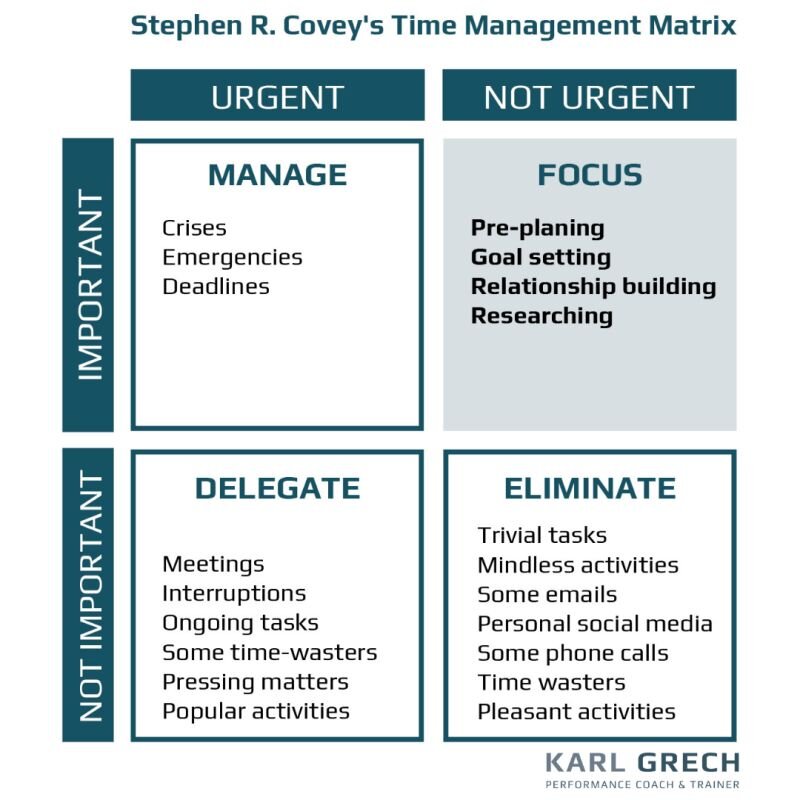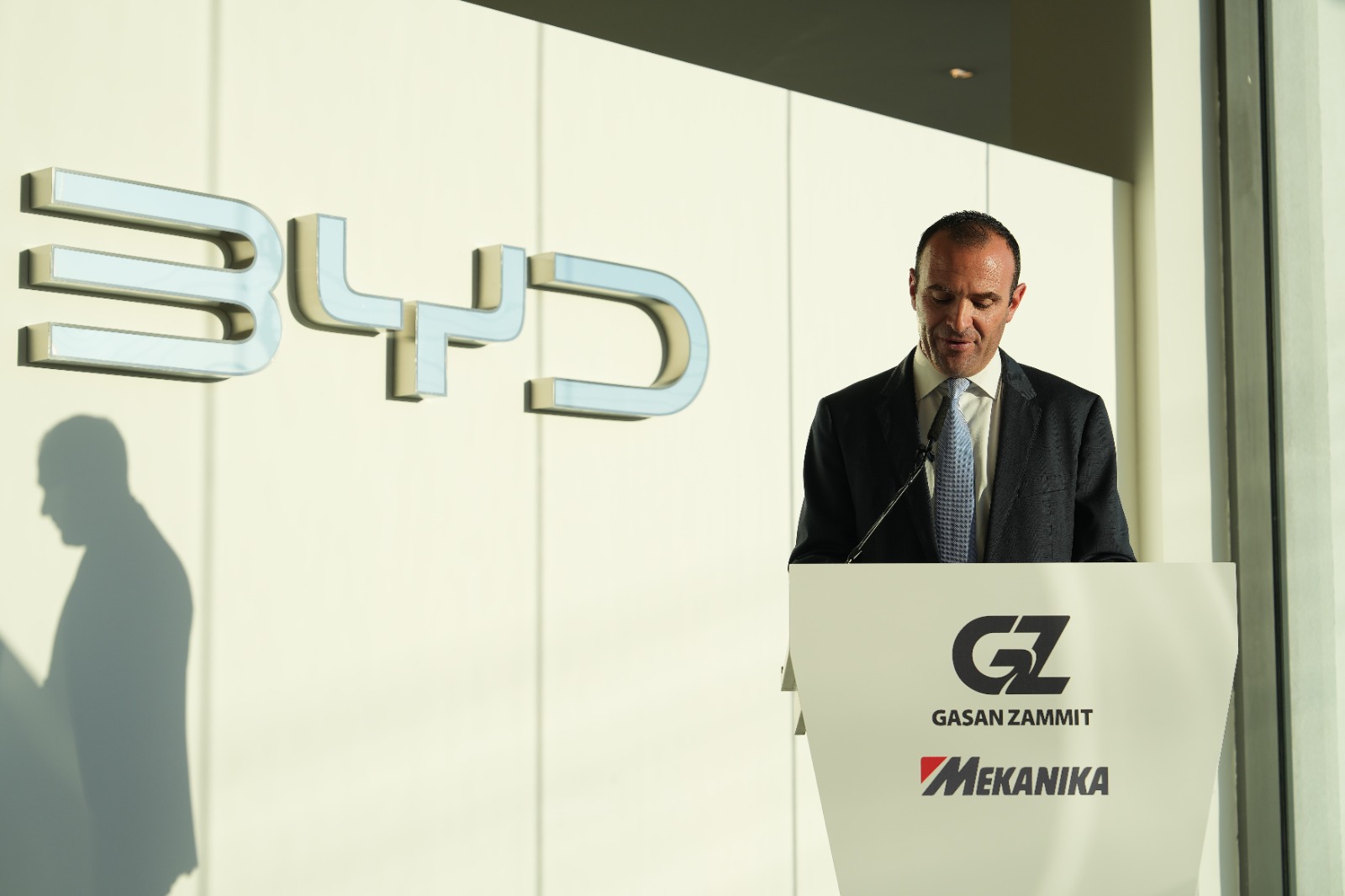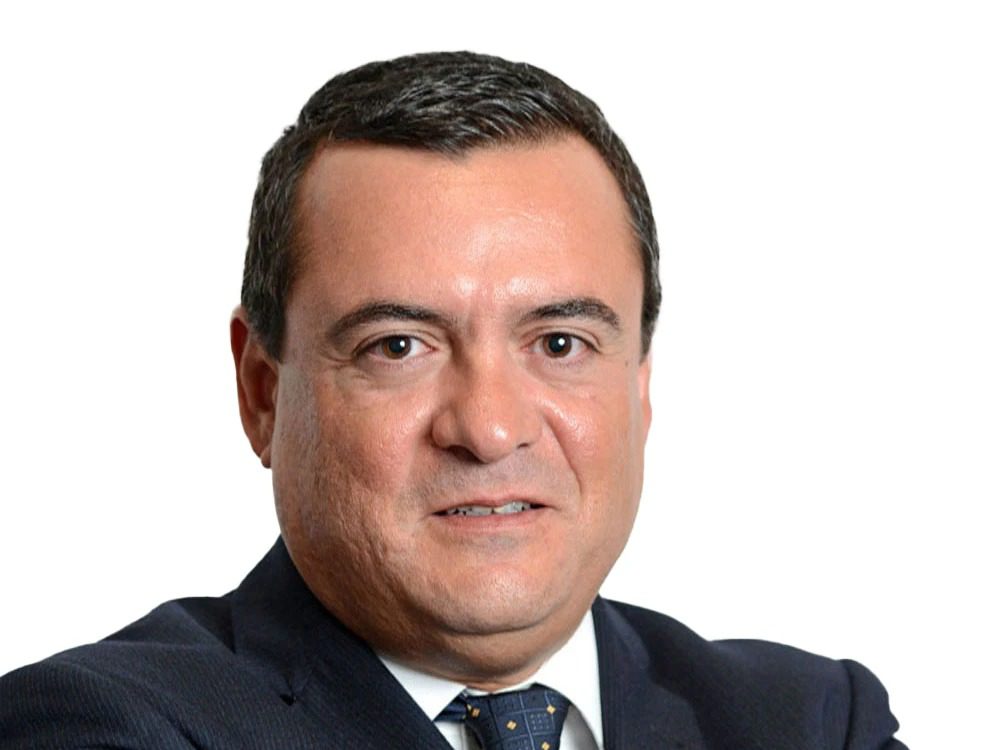Time, or lack of it, is one of the main issues that are constantly being debated, both when it comes to work as well as private life. Many speak of work-life harmony, but how can one achieve this balance if there aren’t enough hours in the day for work alone?
Earlier on this week Performance Coach and Leadership Trainer Karl Grech took to social media to debate time constraints in a working day, and argued that eight hours are more than enough to do whatever it is we need to do.

“If you feel that eight hours are not enough, you’re probably not focusing on the things that matter,” Mr Grech wrote as he proceeded to suggest a four-tier matrix which enables users to split tasks based on their urgency and importance.
“This matrix will help you navigate through your endless list of tasks and classify each of them, so that you can take the right action,” he advised.
Another aspect highlighted in the matrix that Mr Grech shared is that business leaders need to differentiate, first and foremost, between tasks that can be eliminated and those which need to be dealt with. “Eliminate every time waster and trivial task,” he recommended.

Once this is done, the tasks which remain to be dealt with should further be divided into three categories.
This is where business leaders must understand the power of delegation. “Invest some time teaching someone in your team how to do unimportant and time-consuming tasks,” he suggested.
If a task cannot be delegated, it must somehow be managed. Once again this is where urgency comes into play. For example, if there is an emergency, then it must be tackled immediately, as opposed to other tasks which could be postponed because they might require more concentration or further research.
When it comes to taming the time monster, it is often also a question of fitting the right task into the correct time slot, and Mr Grech believes that this is certainly possible.
Mr Grech is a Performance Coach and Trainer who has gathered extensive experience in the field of Training and Development over the years having worked for household names such as StreetHR, The General Soft Drinks Company Ltd, ZAAR Crowdfunding Malta, Hilton Malta, Malta Tourism Authority and JCI, where he also served as Director between 2012 and 2014.
Malta should explore state aid to ease freight costs, C-level logistics experts suggest
Retail Marketing Ltd CEO Jonathan Shaw believes Malta should join forces with other island nations that face similar logistical challenges.
‘The electrification wave of the automotive market is in full swing’ – Gasan Group CEO Mark Gasan
He spoke at the launch of electric vehicle ultra-fast charging stations by the Group’s engineering arm, Mekanika.
ClearFlowPlus green bond issue ‘marks the beginning of an exciting phase,’ says Chairman
While the Water Services Corporation subsidiary reported a decrease in pre-tax profit, Vincent Micallef still says 2023 was a ‘milestone’ ...
‘After 19 years, I went back to where it all began’: MaritimeMT CEO Pauline Micallef visits former school
During her visit, she shared the various opportunities for women within the maritime industry.











